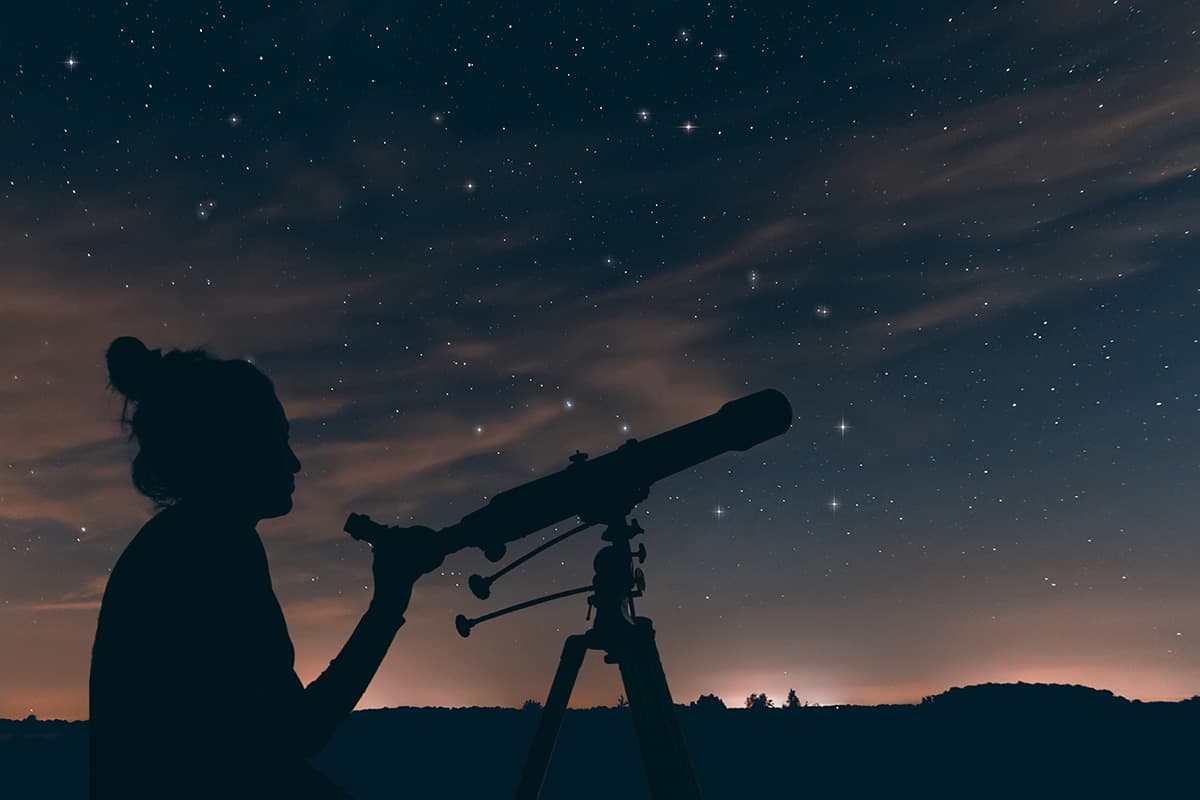
Ever wondered why we dedicate a whole day to celebrating the mysteries of the cosmos? International Astronomy Day, observed on May 18th, is that special day when stargazers, astronomers, and space enthusiasts come together to marvel at the universe's wonders. But why May 18th, and what makes this day stand out in the astronomical community? It's a day packed with activities, events, and educational programs designed to bring the awe-inspiring aspects of the universe closer to the public. From telescope viewings to engaging lectures, this day aims to ignite a passion for the celestial among people of all ages. So, grab your telescope, and let's embark on a cosmic voyage to uncover ten fascinating facts about International Astronomy Day. Ready to be star-struck?
Key Takeaways:
- International Astronomy Day, on May 18th, brings people together to explore the wonders of the universe through events and activities, inspiring curiosity and learning about the stars and planets.
- Celebrating International Astronomy Day fosters a sense of community among astronomy enthusiasts, promotes awareness of light pollution, and offers opportunities for everyone to get involved, from attending events to advocating for dark sky initiatives.
What is International Astronomy Day?
International Astronomy Day, celebrated on May 18th, aims to share the wonders of the universe with the public. Through various events and activities, astronomy clubs, planetariums, and observatories around the world open their doors to demystify space for enthusiasts of all ages. This day serves as a reminder of our place in the vast cosmos and encourages curiosity and learning about the stars, planets, and other celestial bodies.
How Did International Astronomy Day Start?
- International Astronomy Day was founded in 1973 by Doug Berger, the then-president of the Astronomical Association of Northern California. His vision was to set up telescopes in urban areas allowing passersby to experience the thrill of viewing celestial objects up close. This initiative was designed to spark interest in astronomy among people who might not otherwise have the opportunity to learn about the night sky.
Why Celebrate International Astronomy Day?
-
Celebrating International Astronomy Day helps to foster a sense of community among astronomy enthusiasts and professionals. It's an opportunity for experts to share their knowledge and passion with the general public, inspiring future generations of astronomers and space scientists.
-
Additionally, this day highlights the importance of preserving dark skies. Light pollution is a growing concern that not only affects our ability to observe the stars but also disrupts ecosystems. Events on International Astronomy Day often promote awareness and solutions for reducing light pollution.
Events and Activities on International Astronomy Day
-
On International Astronomy Day, you can participate in a variety of activities. Many organizations host public star parties, telescope viewings, and astronomy workshops. These events are great for beginners and seasoned stargazers alike.
-
Planetariums often offer special shows and presentations that take visitors on a journey through the cosmos. These immersive experiences can be both educational and breathtaking.
-
For families, many events include hands-on activities for children, such as building model rockets or crafting constellations. These fun projects make learning about space accessible and enjoyable for young learners.
How to Get Involved in International Astronomy Day
-
Getting involved in International Astronomy Day can be as simple as attending a local event or even just stepping outside to gaze at the night sky. Many astronomy clubs and societies welcome volunteers to help organize and run events, offering a great way to meet like-minded individuals.
-
Social media and online platforms also play a significant role in celebrating International Astronomy Day. Virtual events, webinars, and live-streamed telescope viewings allow people from all over the world to participate, even if they can't attend in person.
-
For those looking to contribute more actively, consider advocating for dark sky initiatives in your community. Promoting the installation of appropriate outdoor lighting and participating in citizen science projects are meaningful ways to celebrate the day.
-
Lastly, simply sharing your passion for astronomy with friends and family can make a difference. Encouraging others to look up and wonder about the universe fosters a collective appreciation for the beauty and mystery of the cosmos, aligning perfectly with the spirit of International Astronomy Day.
Stars Align for a Stellar Celebration
International Astronomy Day isn't just another date on the calendar; it's a gateway to the cosmos, inviting us all to gaze upward and ponder our place in the vast universe. Celebrated on May 18th, this day unites amateur astronomers, curious minds, and space enthusiasts in a shared quest for knowledge and discovery. From backyard stargazing to engaging planetarium shows, the day offers countless ways to connect with the cosmos. It's a reminder that the mysteries of the universe are not beyond our reach but await our curiosity and passion for exploration. So, grab a telescope, join a local event, or simply look up at the night sky. Let the wonders of astronomy inspire you, fuel your curiosity, and maybe, just maybe, change how you see the world around you.
Frequently Asked Questions
Was this page helpful?
Our commitment to delivering trustworthy and engaging content is at the heart of what we do. Each fact on our site is contributed by real users like you, bringing a wealth of diverse insights and information. To ensure the highest standards of accuracy and reliability, our dedicated editors meticulously review each submission. This process guarantees that the facts we share are not only fascinating but also credible. Trust in our commitment to quality and authenticity as you explore and learn with us.


